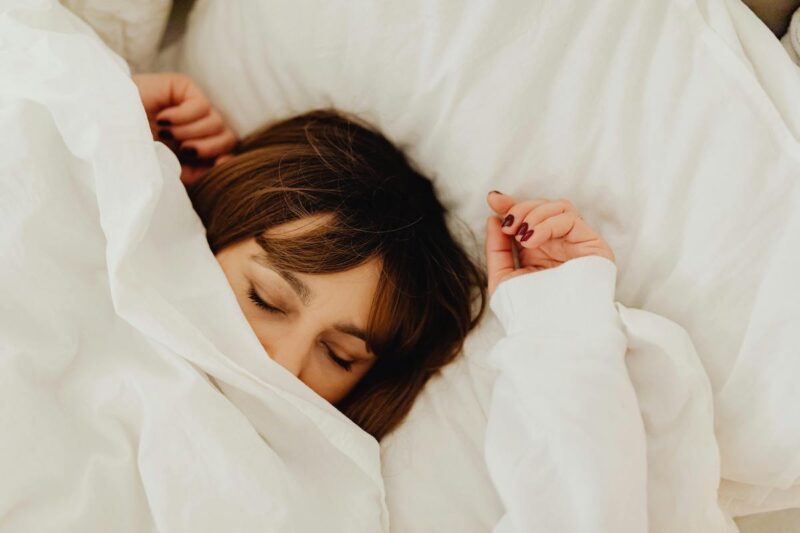What role does sleep play in hair growth? Can short, restless nights lead to serious hair loss and unhealthy hair? Conversely, is hair growth stimulated by a good night's sleep?
To take stock of the relationship between sleep and hair health, here are a few ideas and tips to ensure that your hair also has a good night's sleep and that you wake up in great shape.
How does sleep work?
For scientists, sleep is a "decrease in the state of consciousness that separates 2 phases of wakefulness". Each night is punctuated by alternating cycles of around 90 minutes, during which our brain activity is more or less intense.
Sleep is a physiological state whose duration and quality have a direct influence on our health. Numerous studies have long established that a lack of sleep - whether voluntary or not - has dramatic consequences for our bodies, and can even be life-threatening.
When everything is going well, we naturally alternate between being awake and asleep according to a regular biological rhythm (the circadian rhythm) that roughly corresponds to the alternation of day and night. Depending on the individual, the rest phase may be longer or shorter, but it is estimated that a good quality sleep lasts around 7 to 8 hours, divided into 90-minute cycles.
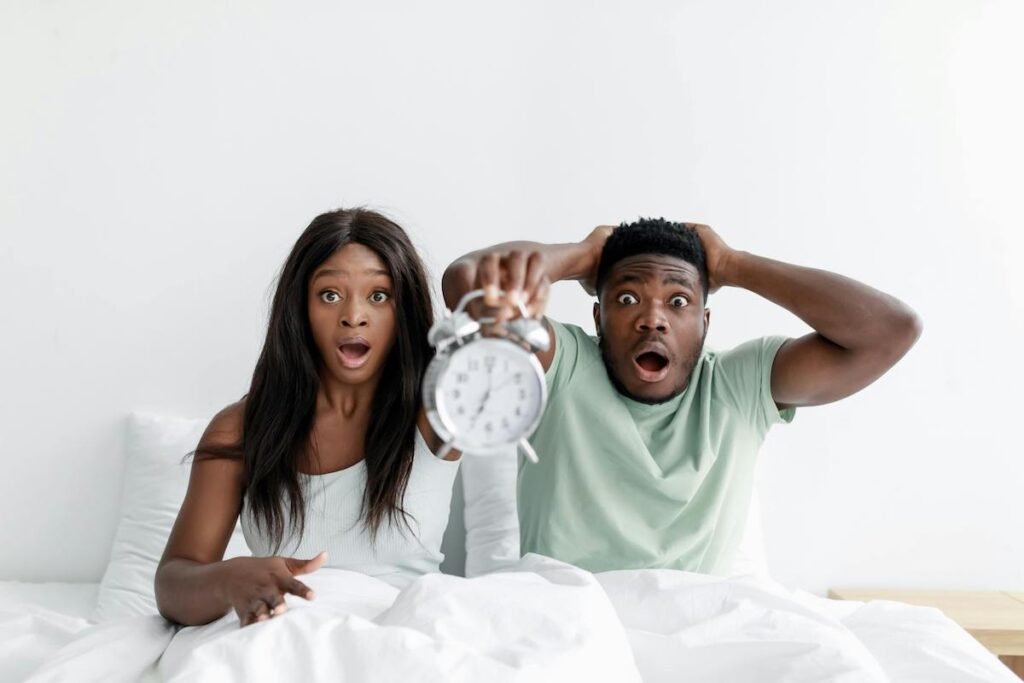
Circadian rhythm out of whack?
Sleep is triggered by 2 hormones:
1) The first is cortisol, which is involved in regulating the circadian (light-dark) cycle. Also known as the stress hormone, it is produced by the adrenal glands in response to prolonged stress (physical or emotional).
2) the second is melatonin (located in the pineal gland), which is activated mainly when darkness falls.
But that doesn't mean our nights are a bed of roses, and our little cells continue to work hard to repair our bodies and prepare them for the next (hard) day.
The main functions of a good night's sleep - however long it lasts - are :
- Immune protection
- Cell regeneration and optimal blood circulation
- Hormone synthesis
We often talk about restful sleep. So it's not just an empty word.
What are the consequences for hair health when you sleep badly?
These days, it's often difficult to get a full night's sleep in complete serenity: the stress of everyday life, a noisy environment, late-night screen-viewing, etc., all of which disrupts our internal clock and upsets the natural rhythm of our sleep. According to a recent study (March 2025), 1 hour spent in bed in front of a screen would lead to a loss of almost 30 minutes of sleep and increase the risk of insomnia.

Lack of sleep can seriously damage your health
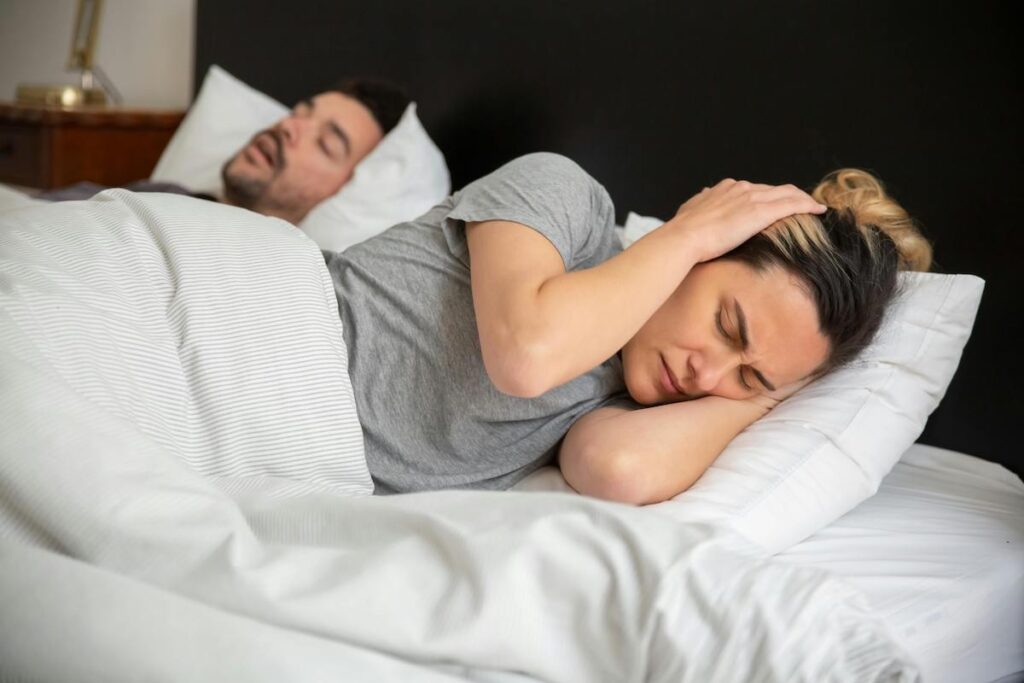
It's easy to see why stress is a major factor contributing to hair loss, given that cortisol levels increase with stress levels. It is the neurobiological reaction to any alarm signal. Historically, this hormone has been beneficial because it protects us by mobilising our physical and intellectual capacities at the first signs of alarm. Cortisol increases our vigilance, enabling us to react appropriately to any threat. Our brain must constantly make decisions and mobilise all its energy to provide the best response in the event of an attack (both literally and figuratively), and this is one of the essential functions of cortisol. Today, there is little risk of crossing paths with a mammoth, but that's the idea.
An essential hormone, it has multiple functions: regulating metabolism (production of proteins, carbohydrates and lipids), anti-inflammatory action, regulating blood pressure and circulation, balancing electrolytes (sodium and potassium, which is also a friend of beautiful hair). The higher its level, the more its protective and regulatory functions are disrupted and the more our hair is damaged.
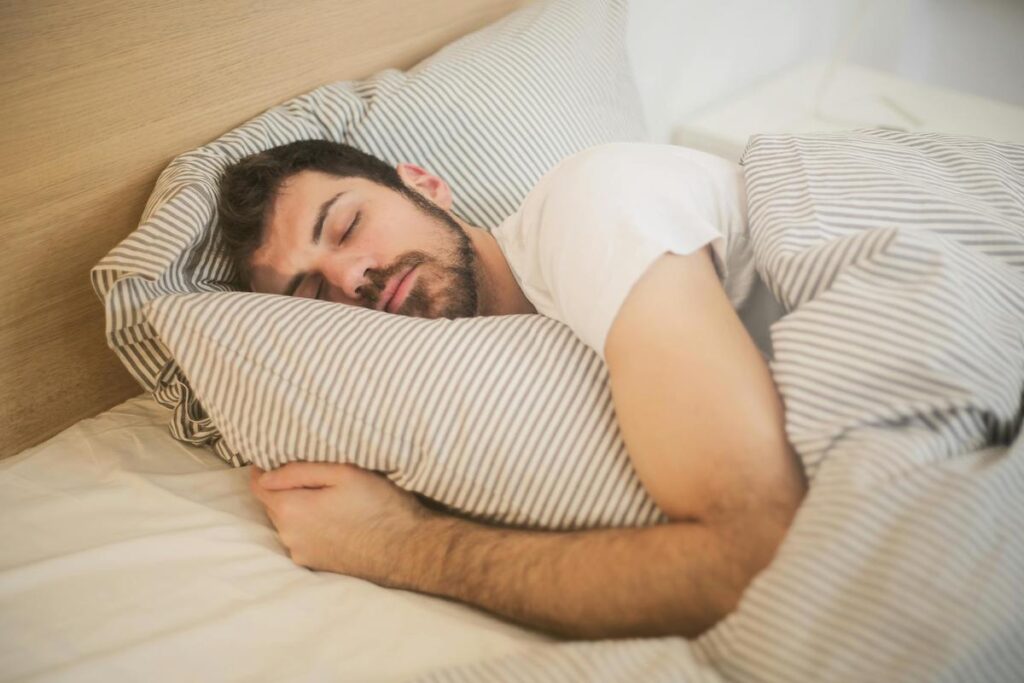
A good night's sleep is essential for recharging your batteries

The other hormone that induces sleep, melatonin, appears to have a significant role to play in the hair follicle. Given its recognised anti-oxidant properties, melatonin is thought to have a dual action: protecting follicles from oxidative stress and stimulating cell growth (the latter has so far only been established in in vitro tests). Initial results indicate that treatment with melatonin has a positive impact on androgenetic hair loss, particularly in the case of androgenetic alopecia in women. How and why remains to be seen.
When these 2 hormones malfunction, the resulting imbalance has serious consequences for healthy hair growth: the hair's vital cycle is deregulated, and the hair follicle's blood supply is irregular and insufficient.
And that's not all: cell growth hormones are often synthesised at night. When the night-time rhythm is disrupted, we sleep less and less well: over time, the growth hormones, including those that manage hair growth, are disrupted. The result: hair doesn't grow as well because its vital cycle is out of kilter. Here, we're talking about nights without quality sleep over a long period, or even chronic stress. Fortunately, a bad night's sleep once in a while has no impact.
Another consequence of stress and insufficient sleep is that blood flow to the scalp, a particularly vascular environment, slows down instead of receiving the right amount of oxygen and nutrients. Hair withers because the hair follicles are less nourished. As the hair follicles receive fewer nutrients, they become miniaturised and produce unhealthy hair. Hair becomes thinner and become more fragile, tending to break more easily. Hair loss also intensifies and baldness gradually sets in.
A word of advice: Hair loss is rarely caused by a single phenomenon and it is important to take a global view to determine the possible causes of alopecia in both women and men.
Preparing your hair before bed: tips for a nightly hair routine
Anything that naturally facilitates the transition from wakefulness to sleep is beneficial for the hair, but not only that. So it's up to each and every one of us to set up a little personal routine to help us get back on our biological clock as quickly as possible. We create a peaceful environment to help us fall asleep peacefully: room fragrance or scented spray, essential oil on the wrists (Bach flowers, bitter orange, lavender), (soft!) music, herbal tea or dedicated food supplements. Avoid bright light from screens and the hectic pace of video games. Easier said than done, put your brain on pause by releasing the pressure and getting rid of the dark thoughts of the day: relaxation, meditation and yoga are all useful techniques for promoting quality sleep.
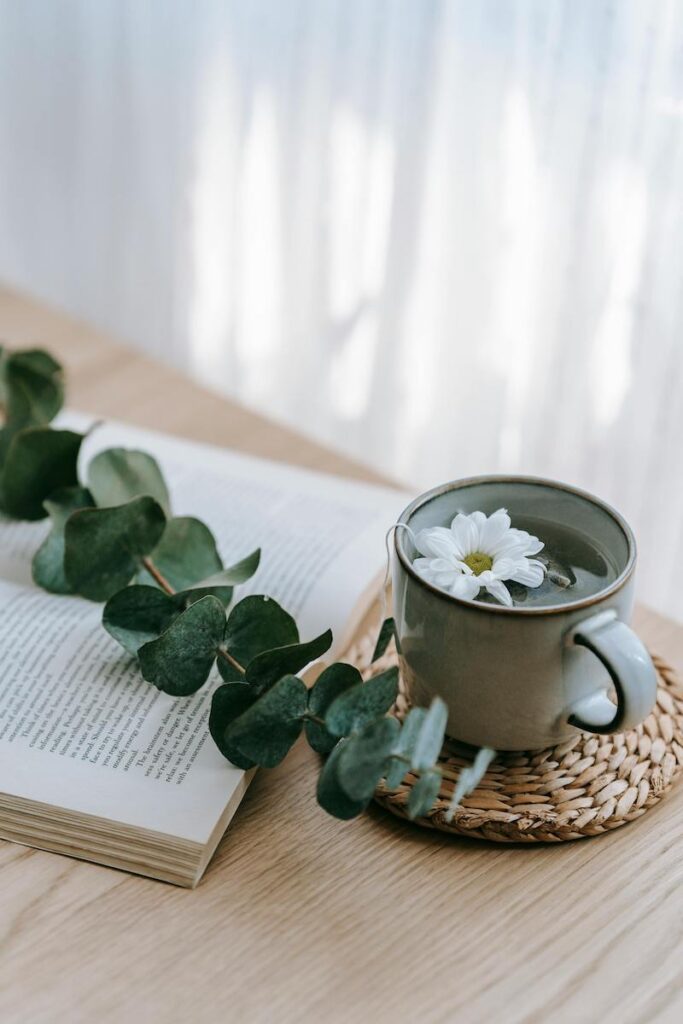
Establish a ritual before going to bed
In practical terms, for our hair, why not take the opportunity to apply Clauderer care products:
– scalp massage to soothe away the tensions of the day, with the fresh, light fragrance of natural hair care.
- Thanks to the extended break, the power of the active ingredients is strengthened until the next morning - and time is saved.
A natural fibre, silk loves our hair: far from being frivolous, this little touch of luxury, whether scarf or pillowcase, protects the hair during the night and preserves its moisture. a must-have for Afro hair, which is naturally dry.
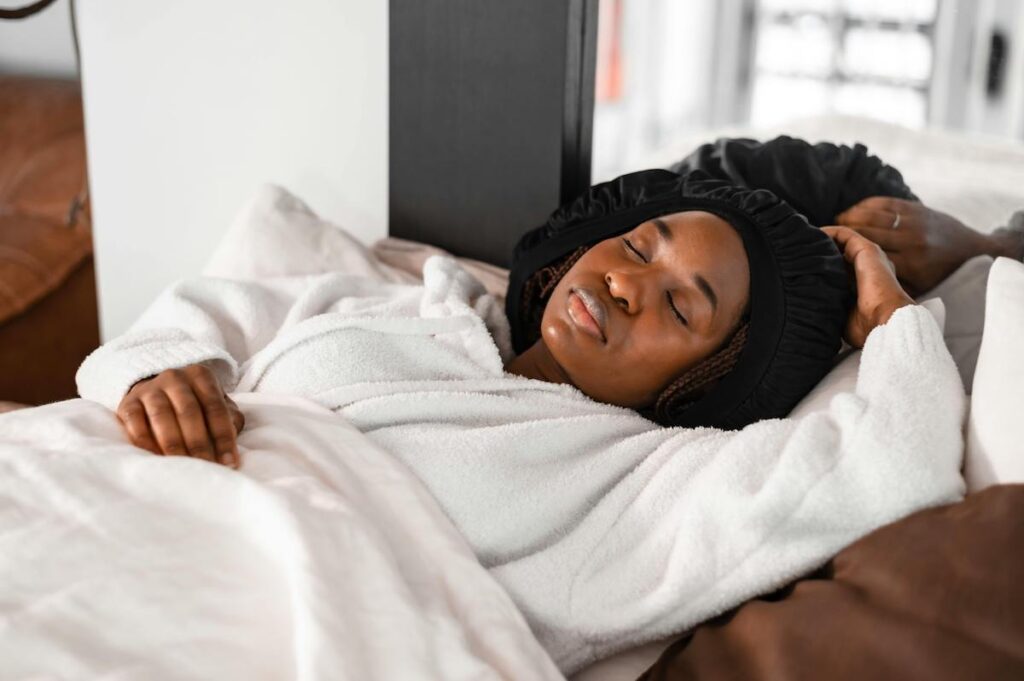
Protecting your hair at night
Good to know: The best foods for a good night's sleep
- Rich in potassium and melatonin, bananas are THE fruit of the evening. Certain legumes (edamame or black beans) are also good sources.

Foods rich in potassium and melatonin


- Pineapple, dried fruit (apricots, almonds and walnuts), as well as brown rice and fish are all important sources of melatonin.
While the vital role played by sleep in the proper functioning of our bodies is well established, much remains to be discovered about the links between sleep (the factors that facilitate it and those that inhibit it) and hair growth. Research will undoubtedly enable us to explore in greater depth the interactions between sleep deprivation and hair loss. In the meantime, stress seems to be the key element that you can play on to protect your hair. Ready to let go?

